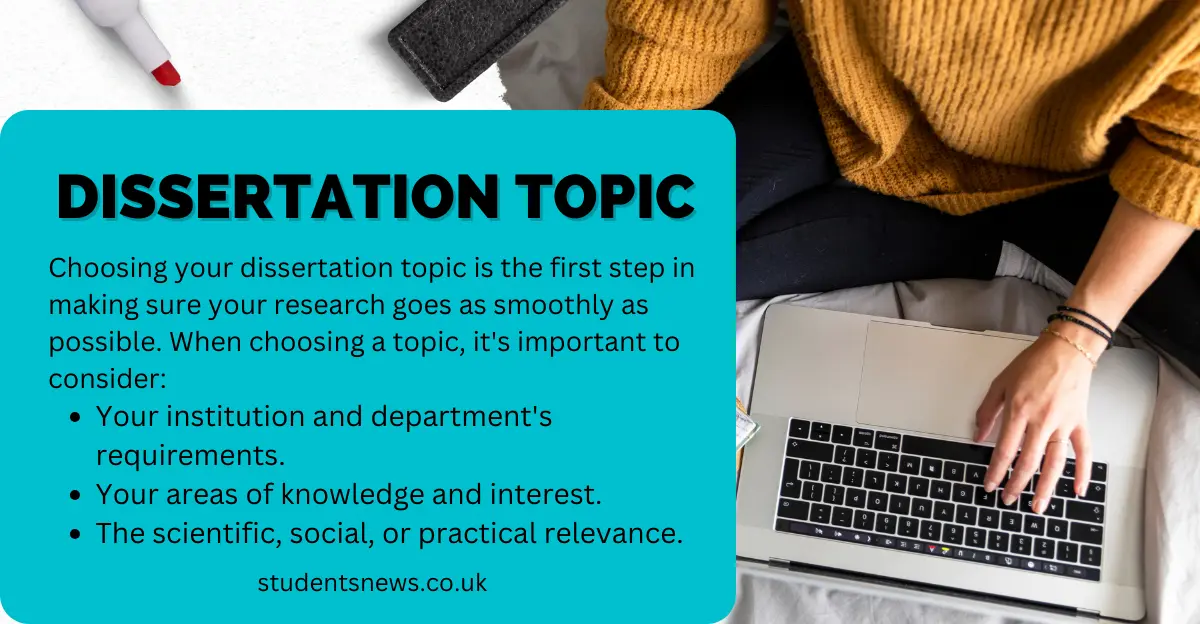Artificial Intelligence (AI) is a rapidly evolving field with a wide range of potential dissertation topics. Here’s an extensive list of specific AI dissertation topics across various domains to inspire your research:
Artificial Intelligence Dissertation Ideas in Healthcare
- Personalized Medicine Using AI: Tailoring treatment plans based on individual genetic profiles and health data.
- AI for Early Cancer Detection: Using machine learning algorithms to improve the accuracy of early cancer detection through imaging.
- Robotic Surgery Enhanced by AI: Investigating the efficacy and safety of AI-assisted robotic surgery in complex procedures.
- AI in Predicting Patient Outcomes: Developing predictive models for patient recovery and treatment outcomes.
- AI for Mental Health Diagnosis: Utilizing AI to identify mental health disorders through behavioral and speech analysis.
AI Dissertation Topics in Finance
- Algorithmic Trading with AI: Creating and testing AI algorithms for predicting stock market trends and executing trades.
- Fraud Detection in Banking: Applying AI models to detect and prevent fraudulent transactions.
- Credit Scoring Using AI: Enhancing credit scoring systems with machine learning to better assess borrower risk.
- AI in Financial Risk Management: Developing AI models to predict and mitigate financial risks.
- Personal Finance Management with AI: Creating AI-driven applications to help individuals manage their finances and investments.
AI for Environmental Sustainability
- Climate Change Prediction Models: Using AI to model and predict the impact of climate change.
- AI in Precision Agriculture: Implementing AI techniques to optimize farming practices and increase crop yields.
- Wildlife Conservation through AI: Developing AI systems to monitor and protect endangered species.
- Smart Energy Management: Utilizing AI to optimize energy consumption and reduce carbon footprints.
- AI in Pollution Monitoring: Creating AI solutions for real-time monitoring and control of environmental pollution.
AI in Transportation
- Development of Autonomous Vehicles: Researching the technology and safety protocols for self-driving cars.
- AI for Traffic Management: Implementing AI to optimize urban traffic flow and reduce congestion.
- Predictive Maintenance in Transport Systems: Using AI to predict and prevent maintenance issues in transportation infrastructure.
- AI in Public Transportation Optimization: Enhancing the efficiency and reliability of public transport networks with AI.
- Air Traffic Management Systems: Developing AI-based solutions for managing and optimizing air traffic.
AI in Education
- Personalized Learning Systems: Creating AI-driven systems that adapt educational content to individual student needs.
- Intelligent Tutoring Systems: Developing AI tutors that provide personalized support to students.
- Educational Data Mining: Using AI to analyze educational data and improve learning outcomes.
- AI in Assessment and Evaluation: Implementing AI for more accurate and efficient student assessments.
- AI for Inclusive Education: Developing AI tools to support students with disabilities.
AI in Cybersecurity
- AI for Cyber Threat Detection: Creating AI models to identify and respond to cybersecurity threats.
- Data Privacy Solutions Using AI: Developing AI techniques to enhance data privacy and protection.
- AI in Fraud Detection Systems: Applying AI to detect and prevent cyber fraud.
- Behavioral Analysis for Cybersecurity: Using AI to analyze user behavior and detect anomalies.
- AI in Network Security: Enhancing network security protocols with AI.
AI in Natural Language Processing (NLP)
- Sentiment Analysis on Social Media: Using AI to analyze and interpret sentiments expressed on social media platforms.
- AI for Language Translation: Developing advanced AI models for real-time language translation.
- Chatbots and Virtual Assistants: Creating intelligent conversational agents for customer support and personal assistance.
- AI in Speech Recognition: Improving speech recognition technologies with AI.
- Text Summarization Using AI: Developing AI tools for automatic summarization of long texts.
Ethical and Societal Implications of AI
- Bias in AI Algorithms: Investigating the sources of bias in AI and methods to mitigate it.
- Privacy Concerns in AI Applications: Exploring the ethical implications of AI on user privacy.
- Impact of AI on Employment: Analyzing the effects of AI on job markets and potential mitigation strategies.
- Regulatory Frameworks for AI: Developing policies and frameworks to govern the ethical use of AI.
- AI in Law Enforcement: Exploring the ethical implications of AI in law enforcement and surveillance.
AI in Creative Industries
- AI in Music Composition: Creating AI models to compose original music.
- AI for Visual Arts: Using AI to generate visual art and analyze artistic styles.
- AI in Film Production: Implementing AI in scriptwriting, editing, and visual effects.
- Generative Adversarial Networks (GANs) in Art: Exploring the use of GANs in creating realistic art and animations.
- AI in Game Design: Developing AI-driven game characters and narratives.
AI in Legal Studies
- AI for Legal Research: Creating AI tools to assist in legal research and case analysis.
- Predictive Analytics in Law: Using AI to predict legal outcomes and support decision-making.
- Ethical Implications of AI in Law: Investigating the impact of AI on legal ethics and privacy.
- AI for Contract Analysis: Developing AI systems to review and analyze legal contracts.
- AI in Intellectual Property Law: Exploring the role of AI in managing and protecting intellectual property rights.
These AI dissertation topics cover a wide range of applications and implications, providing ample opportunities for in-depth research and innovation. Choose a topic that aligns with your interests and expertise, and embark on a journey to contribute valuable insights to the field of artificial intelligence.


